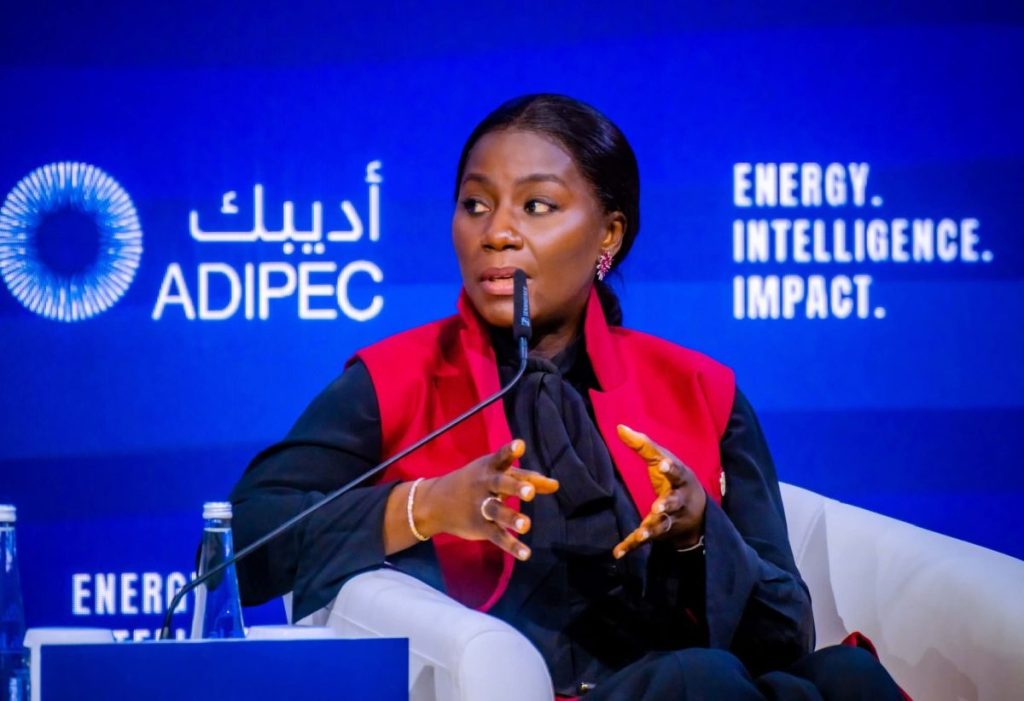
Mkpoikana Udoma
Port Harcourt — Nigeria has reaffirmed its commitment to creating a stable and investment-friendly policy environment for sustainable energy development, as the country took centre stage at the ongoing Abu Dhabi International Petroleum Exhibition and Conference, ADIPEC 2025.
Speaking during a high-level ministerial panel on “Incentivising Sustainable Growth Through Government Energy Policies,” Special Adviser to the President on Energy, Mrs. Olu Verheijen, said Nigeria is aligning fiscal, regulatory, and industrial frameworks to attract capital into cleaner energy projects while expanding access to power across the country.
According to Verheijen, “Our focus is on designing policies that de-risk investment, deepen domestic energy value chains, and support the transition to a more sustainable, resilient energy system. We are ensuring that investors see Nigeria as a predictable and competitive environment for long-term energy partnerships.”
She added that Nigeria’s approach is to drive “energy transition without economic disruption,” noting that the country is expanding its gas infrastructure, promoting renewable energy uptake, and improving the efficiency of traditional fuels to balance growth and sustainability.
“We are leveraging our gas resources as a transition fuel, powering industries, improving energy access, and creating jobs while laying the foundation for cleaner alternatives. Our policies are practical, data-driven, and inclusive,” Verheijen emphasized.
Other panelists included ministers from Libya, Senegal, and Argentina, who shared insights on how policy reforms can stimulate local content development, attract foreign investment, and enhance regional cooperation.
Verheijen noted that Nigeria’s participation at ADIPEC 2025 reinforces President Bola Ahmed Tinubu’s Renewed Hope Agenda for energy transformation.
“We are building a policy ecosystem that not only supports investors but also benefits our people, from the oil-producing regions to rural communities that need affordable energy the most,” she stated.
The panel, moderated by John Defterios, underscored the critical role of forward-looking government policies in achieving the dual goals of industrial competitiveness and environmental responsibility.
The session highlighted that countries able to provide policy stability, transparent regulation, and clear transition pathways will lead the next wave of global energy investment and innovation.
This article was originally posted at sweetcrudereports.com
Be the first to comment